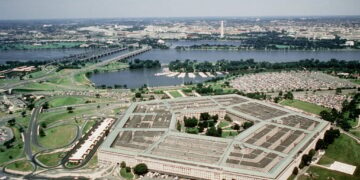December 23, 2024
For Abraham Accords 2.0, conditioning aid to Israel must be on the table for Trump
By Kevin Joseph

As President-elect Donald Trump prepares to start his new term in January, ceasefire talks between Israel and Hamas have reportedly gained momentum. And in another notable move, the incoming president appears to be determined to reach such a deal as his aides have told Qatar to recall Hamas leaders to Doha in order to have negotiations. Even as the Middle East faces upheavals, Trump will have an opportunity to facilitate diplomacy in the region.
Trump has made it clear that he wishes to expand the Abraham Accords during his second term. The continued normalization of relations between Arab countries and the state of Israel has the potential to create goodwill and stability within the region. Most importantly, an extension of the accords could help the United States decrease its military footprint by allowing Middle Eastern regimes to cooperate and create stability. This may empower the U.S. to retrench and focus its resources on East Asia or the homefront, a priority for many America-first conservatives who support Trump.
Undeniably, the crown jewel for an Abraham Accords 2.0 would be an Israeli-Saudi normalization. But unlike the first round of the Abraham Accords in which the Trump administration largely sidestepped the issue of Palestine, America cannot afford to ignore the Palestinian question if it wants Jerusalem and Riyadh to normalize relations.
More on Middle East

Featuring Jennifer Kavanagh
April 17, 2025






